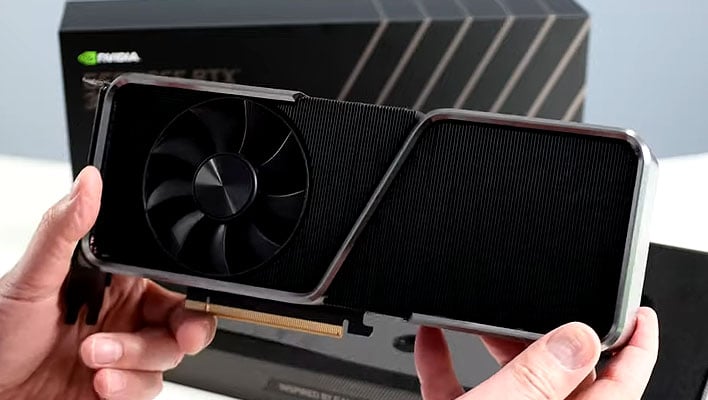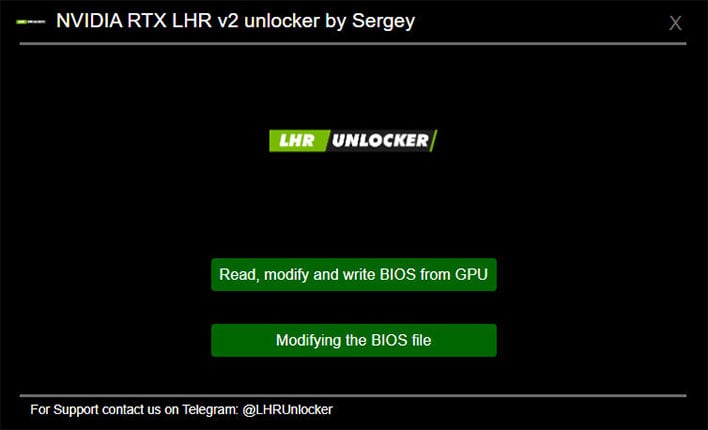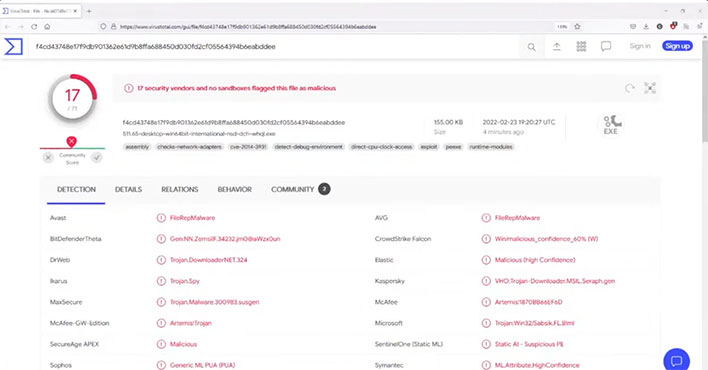That Sketchy NVIDIA RTX LHR Unlocker Tool? It's Actually Malware

Update (2/24/22):
When we wrote about the NVIDIA RTX LHR Unlocker tool on GitHub yesterday, we noted it came with caveats and red flags (see below). It just didn't sit right that it required downloading custom drivers from the developer, which at best would have meant it likely would have ruled out anything but mining (no gaming). And at worst, trusting an unknown source carries all kinds of risk. Turns out the worst case scenario is the one that played out.
Source: Red Panda Mining
The Red Panda Mining channel on YouTube posted a video exposing the scam utility. It installs malware onto Windows PCs, and even "adds a whole C:\ drive exclusion in Microsoft Defender when you install it—YIKES!" And as seen in the screenshot above, an upload to Virus Total shows that well over a dozen antivirus programs detect the utility as malware.
Yikes indeed. Fortunately, the project has been removed from GitHub.
Original Article:
If something can be locked, it can be unlocked, right? That's what hours of playing Skyrim has taught me, anyway. To some extent, the same concept applies to NVIDIA's Lite Hash Rate (LHR) cards with reduced cryptocurrency mining capabilities. There have been efforts to bypass the hashrate limiter, and a utility on GitHub claims it can unlock the full mining potential of NVIDIA's GeForce RTX 30 series.
We have see similar attempts before. Back in August of last year, for example, we wrote about an update to NBMiner that aimed to restore up to 70 percent of the maximum unlocked hashrate on LHR cards. Then in October, someone came up with a clever workaround that could achieve full mining performance if splitting the workload between two different cryptocurrencies.
Now there's a utility that claims it can restore the full mining performance of LHR cards without splitting the workload. Called "NVIDIA RTX LHR v2 Unlocked," it's described as a fully automated BIOS modifier that is "simple, intuitive, and requires no advanced knowledge."

The utility supposedly works with a handful of consumer and workstation cards. Here's the list...
- GeForce RTX 3080 Ti: up to 115 MH/s
- GeForce RTX 3080 LHR: up to 100 MH/s
- GeForce RTX 3070 Ti: up to 69 MH/s
- GeForce RTX 3070 LHR: up to 57 MH/s
- GeForce RTX 3060 Ti LHR: up to 61 MH/s
- GeForce RTX 3060 LHR V2: up to 49 MH/s
- NVIDIA RTX A5000: up to 110 MH/s
- NVIDIA RTX A4500: not measured
- NVIDIA RTX A4000: up to 67 MH/s
- NVIDIA RTX A2000: up to 46 MH/s
If the utility works as advertised, it's potentially bad news for gamers. Or maybe not—there are some cryptocurrency miners who say that LHR cards are still profitable, rendering the hashrate limiter effectively pointless. There's just no way of knowing the precise impact miners are having on the graphics card shortage.
That said, NVIDIA's gaming revenue accounted for $3.42 billion in revenue last quarter. Meanwhile, dedicated cryptocurrency mining processor revenue tallied a comparatively low $24 million, suggesting there's some truth to NVIDIA's hashrate limiter not being much (or enough) of a deterrent.
As for the new NVIDIA RTX LH4 v2 Unlocker utility on GitHub, there are caveats and red flags. For one, it requires custom drivers to work, so casual miners can probably rule out any gaming on a modified card. And those drivers are doled out from the developer, Sergey, so you'd have to just trust that everything is on the up and up.
Secondly, the tool isn't actually out yet. It's supposed to release on February 26. There's already a pull request from someone convinced this will end up being a fake utility, either to distribute malware or to drive up the price of GPUs in China, where the developer is from.
Donations could be another motivating factor. I'm not seeing where the developer is asking for donations yet, though the topic has already been raised in the comments before the utility is even out.


